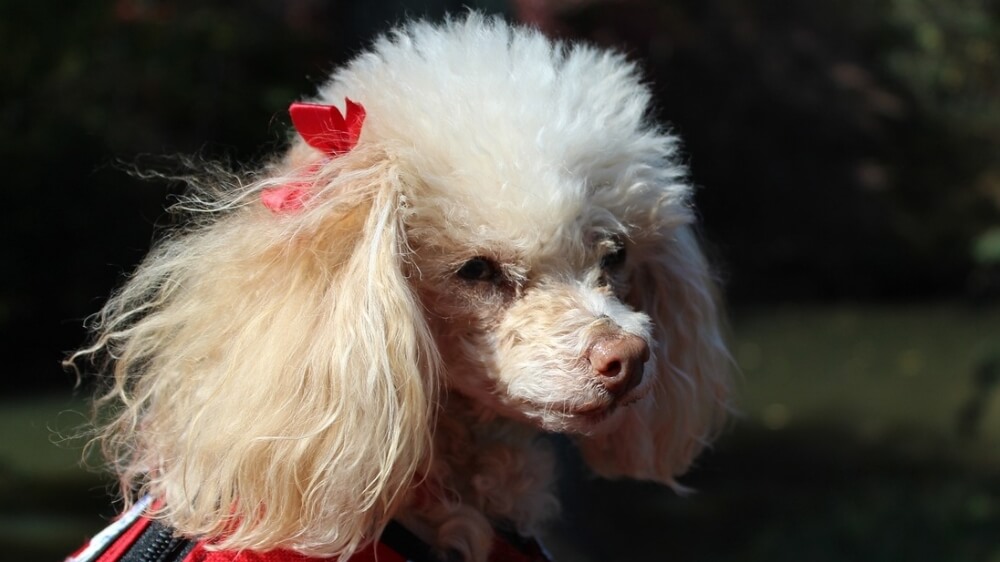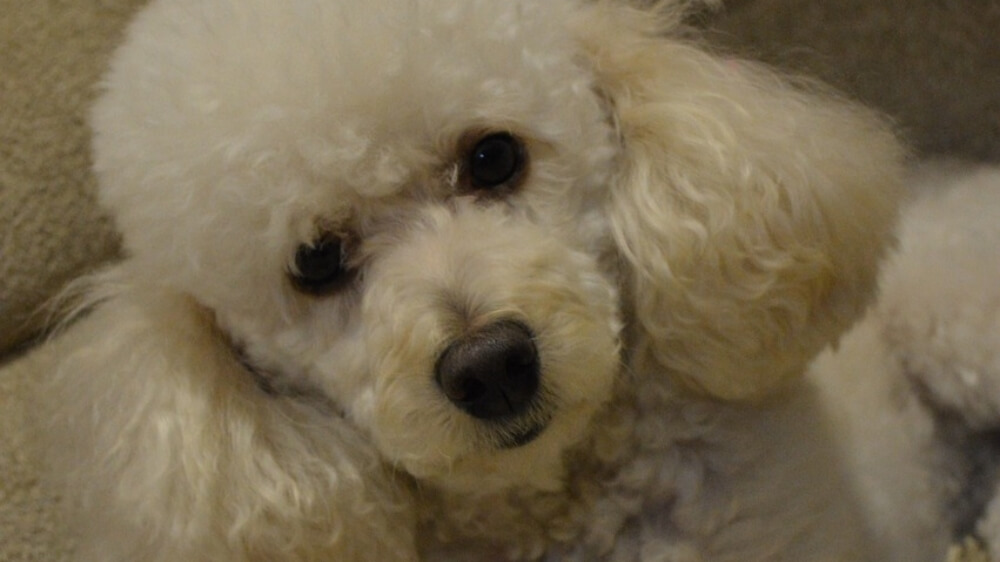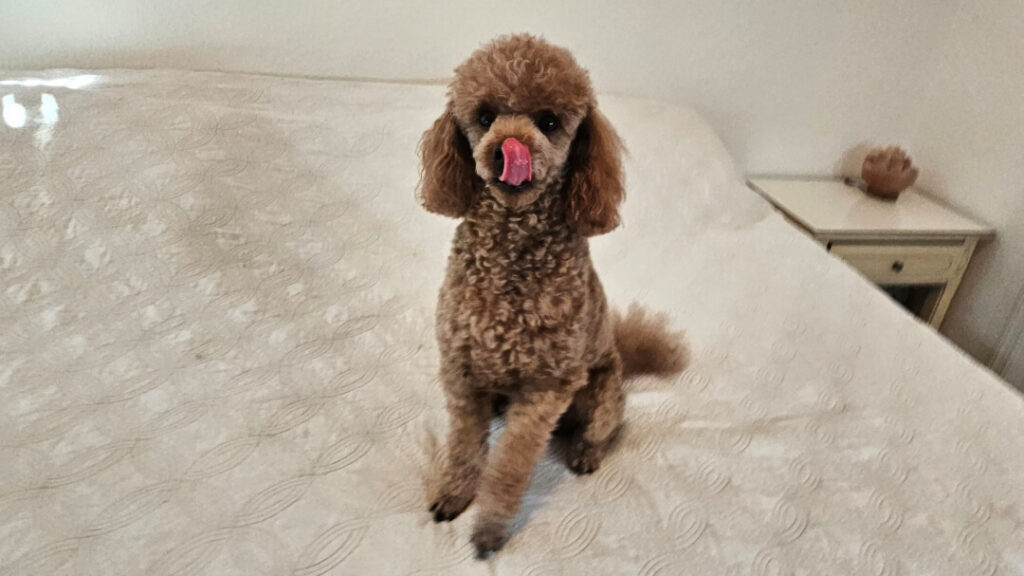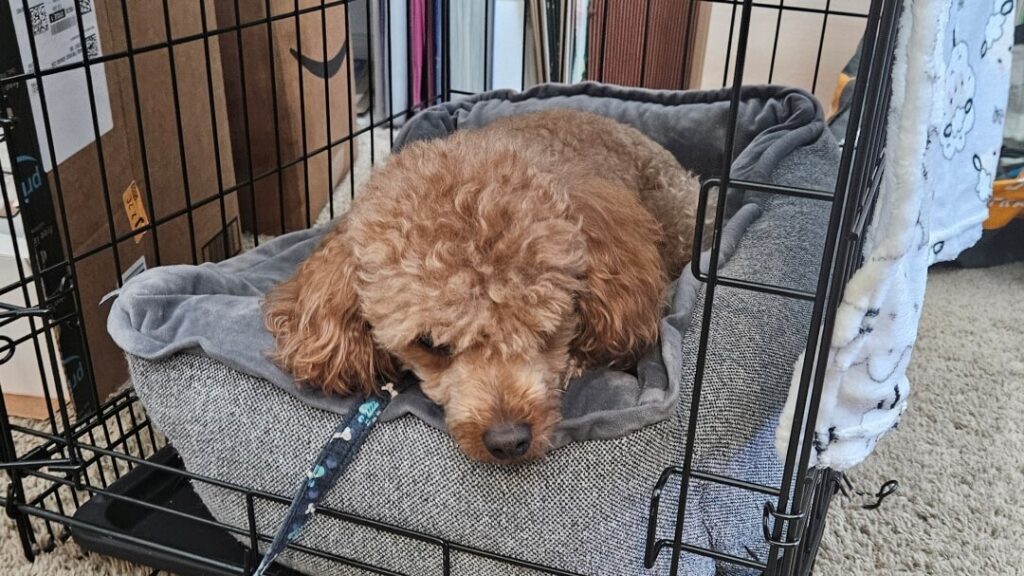Introduction
Miniature poodles are charming, intelligent, and affectionate dogs. However, these delightful traits come with a downside—their heightened sensitivity can make them more prone to anxiety and stress than other breeds.
If you’re a poodle owner, understanding how to manage your furry friend’s mental health is crucial for their well-being. This guide will help you identify signs of anxiety and stress, understand contributing factors, and implement effective strategies to calm your canine companion.

The Unique Personality of Miniature Poodles
Miniature poodles are known for their intelligence and vivacity. They thrive on companionship and mental stimulation, making them wonderful pets.
However, their keen senses and high intelligence also mean they can be overly sensitive to changes in their environment. This sensitivity can manifest as anxiety or stress, affecting their overall quality of life.
Understanding your poodle’s unique personality is the first step in managing their anxiety. These dogs are highly intuitive and can pick up on their owner’s emotions. Therefore, creating a stable and loving environment is essential for their mental health.
Recognizing Signs of Stress and Anxiety
Identifying stress and anxiety in miniature poodles can be challenging since they often display subtle signs. Behavioral changes, such as increased barking, pacing, or restlessness, are common indicators. You might also notice your poodle becoming clingy or excessively seeking your attention.
Changes in grooming habits are another red flag. A stressed poodle might chew, lick, or scratch excessively, leading to skin irritations and hair loss. Additionally, fluctuating appetite or sudden weight loss can signal anxiety.
If your poodle shows any of these signs, it’s time to take action.

Factors Contributing to Stress and Anxiety
Several factors can contribute to stress and anxiety in miniature poodles. Routine changes, such as moving to a new home or altering their daily schedule, can be particularly unsettling for these sensitive dogs.
Health issues, including chronic pain or untreated medical conditions, can also lead to anxiety.
Separation anxiety is a significant concern for poodles. These dogs form strong bonds with their owners, so being left alone for extended periods can cause considerable distress.
By understanding these contributing factors, you can take proactive steps to mitigate stress and anxiety in your poodle.
Practical Tips and Strategies for Managing Anxiety
There are several practical strategies you can implement to help your poodle manage anxiety and stress. Regular exercise is vital. Physical activity releases endorphins, which can improve your dog’s mood and reduce anxiety. Daily walks, play sessions, and interactive toys can provide the necessary physical and mental stimulation.
Creating a safe space at home is equally important. Designate a quiet area where your poodle can retreat when feeling overwhelmed. This space should include their favorite toys, a comfortable bed, and some background noise to muffle stressful sounds.
Mental stimulation is crucial for poodles due to their intelligence. Puzzle toys, training sessions, and new experiences can keep their minds engaged and reduce anxiety. Consistency in your routine can also provide a sense of security, helping to alleviate stress.

The Role of Proper Diet, Grooming, and Vet Visits
A well-balanced diet plays a significant role in your poodle’s overall health and stress levels. High-quality dog food that meets your poodle’s nutritional needs can keep them physically and mentally healthy. Avoid foods with artificial additives and focus on natural, nutrient-rich options.
Regular grooming is essential for poodles, as their curly coats require frequent maintenance. Keeping your poodle clean and groomed can prevent skin issues and discomfort that may contribute to anxiety.
Additionally, regular vet visits are crucial. Routine check-ups can catch health issues early, reducing stress from untreated conditions.
Real-Life Success Stories
Many poodle owners have successfully implemented these strategies to improve their pet’s well-being.
Jane, a poodle owner from California, noticed significant improvements in her dog Max’s behavior after incorporating daily exercise and mental stimulation. Max transformed from a restless and anxious dog to a calm and happy companion.
Another poodle parent, Tom, found that creating a safe space for his dog Bella made a world of difference. By providing a cozy retreat, Bella’s anxiety during thunderstorms decreased dramatically.
These success stories highlight the positive impact of proactive care and attention.

Conclusion
Managing anxiety and stress in miniature poodles is essential for their happiness and well-being. By understanding their unique needs and implementing practical strategies, you can create a stable and loving environment for your furry friend. Remember, your poodle looks to you for comfort and security, so your proactive care can make a significant difference in their life.
Share Your Experiences
We’d love to hear your stories and tips for managing stress in poodles. Share your experiences in the comments below, and let’s build a community of support for our beloved four-legged friends. If you need personalized advice, don’t hesitate to reach out to our team of experts.
Together, we can ensure our poodles lead happy, stress-free lives.

